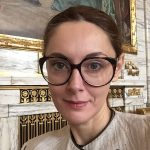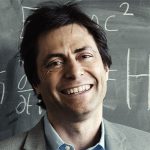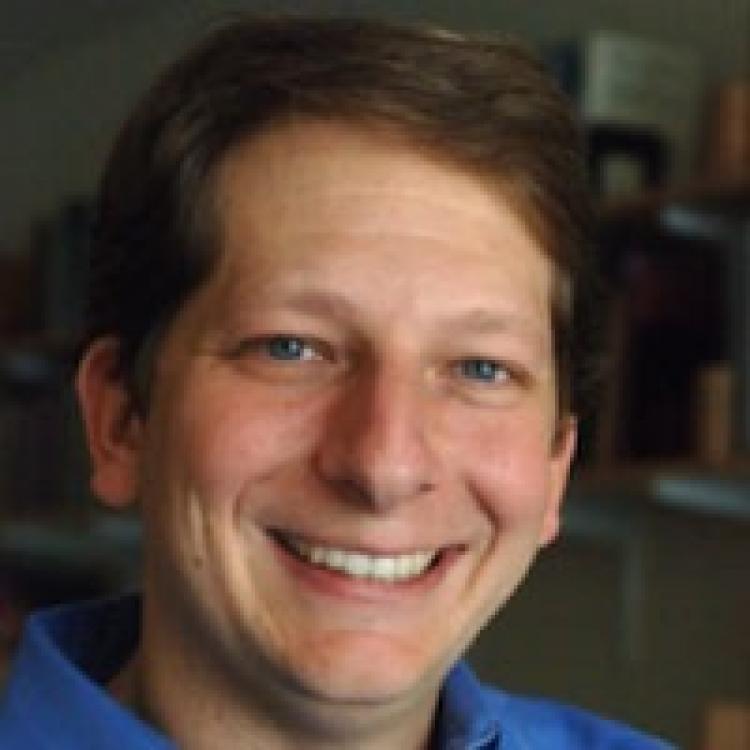IJCAI-ECAI 2018 Invited Talks
Jean-Francois Bonnefon
Toulouse School of Economics
The EurAI Speaker
Title: The Moral Machine Experiment
Date/time: Tuesday July 17, 10:25 – 11:10
Room: Victoria

Short Bio: Dr. Jean-François Bonnefon is a Research Director at the Toulouse School of Economics, France. He is affiliated with the Toulouse School of Management Research, the Centre National de la Recherche Scientifique, and the Institute for Advanced Study in Toulouse. He studies the rational mind in its various manifestations: reasoning, decision-making, and morality. His work appeared in 100+ publications, including articles in Science, Nature Communications, Nature Human Behaviour, and Trends in Cognitive Sciences.His recent research applies the insights of moral psychology and behavioral economics to the new challenges of machine ethics and human-AI cooperation.
Joyce Chai
Michigan State University
Title: Language to Action: Towards Interactive Task Learning with Physical Agents
Date/time: Friday July 13, 13:30 – 14:30
Room: Victoria

She served as Program Co-chair for the Special Interest Group in Dialogue and Discourse (SIGDIAL) in 2011, the ACM Intelligent User Interfaces (IUI) in 2014, and the North America Chapter of ACL (NAACL) in 2015. She is a recipient of the NSF Career Award and the Best Long Paper Award from ACL 2010.Her research interests include natural language processing, situated and multimodal dialogue, and intelligent user interfaces. Her recent work has focused on grounded language processing to facilitate situated communication with robots and other artificial agents.
Hector Geffner
ICREA & Universitat Pompeu Fabra
Title: Model-free, Model-based, and General Intelligence
Date/time: Tuesday July 17, 14:00 – 14:45
Room: Victoria

Short Bio: Hector Geffner is an ICREA Research Professor at the Universitat Pompeu Fabra (UPF) in Barcelona, Spain. He was born and grew up in Buenos Aires and obtained a PhD in Computer Science at UCLA in 1989. He worked then at the IBM T.J. Watson Research Center in NY, USA, and at the Universidad Simon Bolivar, in Caracas. He is in Barcelona since 2001. Hector is a Fellow of AAAI and EurAI, member of the board of the European Association for AI, and former Associate Editor of AI and JAIR. His most recent book, with Blai Bonet, is “A Concise Introduction to Models and Methods for Automated Planning”, Morgan and Claypool, 2013.
His research interests are in computational models of reasoning, action, and learning that are domain-general and can scale up. Hector is the recipient of the 1990 ACM Dissertation Award and is best known for his work in planning for which he received the 2009, 2010, and 2014 ICAPS Influential Paper Awards. In the Spring of 2018, Hector will be teaching a course on social and technological change at UPF.
Nicole Immorlica
Microsoft Research New England
Title: Maximizing the Social Good: Markets without Money
Date/time: Wednesday July 18, 10:25 – 11:10
Room: Victoria

Short Bio: Nicole Immorlica is a senior researcher at Microsoft Research New England and a visiting scholar at Harvard University. She is an associate editor of the ACM Transactions on Economics and Computing, and a guest editor of a special issue of Games and Economic Behavior. Dr. Immorlica holds a PhD in theoretical computer science from the Massachusetts Institute of Technology in Cambridge, MA. She received the Sloan Fellowship in 2012, an NSF CAREER award in 2010, and the Microsoft New Faculty Fellowship in 2009.Her research lies broadly within the field of algorithmic game theory with particular emphasis on matching markets, social networks, and mechanism design.
Danica Kragic Jensfelt
Royal Institute of Technology, KTH
Title: Interactive, Collaborative Robots: Challenges and Opportunities
Date/time: Monday July 16, 14:00 – 14:45
Room: Victoria

Short Bio: Danica Kragic is a Professor at the School of Computer Science and Communication at the Royal Institute of Technology, KTH. She received MSc in Mechanical Engineering from the Technical University of Rijeka, Croatia in 1995 and PhD in Computer Science from KTH in 2001. She has been a visiting researcher at Columbia University, Johns Hopkins University and INRIA Rennes. She is the Director of the Centre for Autonomous Systems. Danica received the 2007 IEEE Robotics and Automation Society Early Academic Career Award. She is a member of the Royal Swedish Academy of Sciences, Royal Swedish Academy of Engineering Sciences and Young Academy of Sweden. She holds a Honorary Doctorate from the Lappeenranta University of Technology. She chaired IEEE RAS Technical Committee on Computer and Robot Vision and served as an IEEE RAS AdCom member.Her research is in the area of robotics, computer vision and machine learning. In 2012, she received an ERC Starting Grant. Her research is supported by the EU, Knut and Alice Wallenberg Foundation, Swedish Foundation for Strategic Research and Swedish Research Council. She is an IEEE Fellow.
Yann LeCun
Facebook AI Research lab and New York University
Title: Learning World Models: the Next Step Towards AI
Date/time: Monday July 16, 09:00 – 09:45
Room: Victoria

Short Bio: Yann LeCun is Chief AI Scientist at Facebook and Silver Professor at New York University, affiliated with the Courant Institute, the Center for Neural Science and the Center for Data Science, for which he served as founding director until 2014. He received an EE Diploma from ESIEE (Paris) in 1983, a PhD in Computer Science from Université Pierre et Marie Curie (Paris) in 1987. After a postdoc at the University of Toronto, he joined AT&T Bell Laboratories. He became head of the Image Processing Research Department at AT&T Labs-Research in 1996, and joined NYU in 2003 after a short tenure at the NEC Research Institute. In late 2013, LeCun became Director of AI Research at Facebook, while remaining on the NYU Faculty part-time. He was visiting professor at Collège de France in 2016.His research interests include machine learning and artificial intelligence, with applications to computer vision, natural language understanding, robotics, and computational neuroscience. He is best known for his work in deep learning and the invention of the convolutional network method which is widely used for image, video and speech recognition. He is a member of the US National Academy of Engineering, the recipient of the 2014 IEEE Neural Network Pioneer Award, the 2015 IEEE Pattern Analysis and Machine Intelligence Distinguished Researcher Award, the 2016 Lovie Award for Lifetime Achievement, and a honorary doctorate from IPN, Mexico.
Max Tegmark
Massachusetts Institute of Technology
Title: Intelligible Intelligence & Beneficial Intelligence
Date/time: Wednesday July 18, 14:00 – 14:45
Room: Victoria

Josh Tenenbaum
Massachusetts Institute of Technology
Title: Building Machines that Learn and Think Like People
Date/time: Friday July 13, 14:30 – 15:30
Room: Victoria
